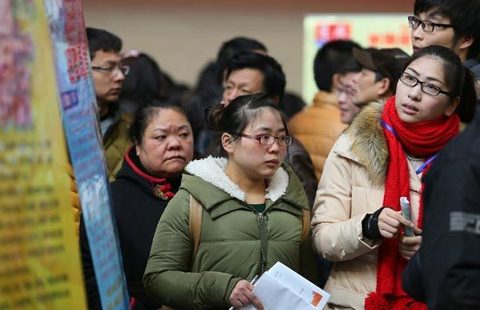Chinese investors shifting focus in global realty purchases
By Wu Yiyao (China Daily) Updated: 2015-02-12 08:30"Many Chinese individual investors have been looking into opportunities in eurozone countries including Portugal and Spain amid the renminbi's appreciation against the euro," said Liu Feng, senior vice-president of CreditEase, a wealth management and credit management services firm.
Exchange rates, interest rates, yields and rental growth are all taken into consideration by Chinese investors when making a decision about where to buy overseas, said analysts.
Researchers said that although China's outward investment has surged, buyers from China are sometimes facing fierce competition from buyers from other countries and regions.
In London, Chinese buyers account for about 20 percent of the properties sold to foreign buyers, but clients from the Middle East are taking a larger share, according to Yolande Barnes, a director at Savills World Research.
Paul Guest, head of research and strategy for the Asia-Pacific region with LaSalle Investment Management, said Chinese investors are also looking at opportunities in Asian cities including Tokyo, Singapore and Seoul.
Related Story:
10 destinations favored by Chinese property investors
According to Hurun report, one in every three wealthy Chinese has property overseas, most of them residential properties. As the domestic property market continues to slump, more and more wealthy Chinese investors have shifted their focus to overseas property markets.
Most Chinese investors buy overseas property for three reasons, for residential property for immigration purpose, for property investment and a place for their children to stay while studying abroad.
Chinese investors invested over $5.4 billion in overseas properties in the first half of 2014; despite less amicable relations between China and Japan, Chinese investors invested 230 million in commercial properties in Japan, three times that of 2013.
 |
|
A real estate agent puts up a "sold" sign in front of a house in Toronto, April 20, 2010. [Photo/IC] |
10 Canada
Chinese investors invest in Canadian property mostly for residential purposes, as an increasing number of Chinese immigrants arrive in Canada.
- A peek inside China's high-speed train factory
- New direct flight links China's Nanning and Seoul
- Joint venture produces over 40,000 Chinese brand cars in Venezuela
- Finnish President says 'lucky' to trade with China
- Chinese company lists on Australian stock exchange
- China to expand effective investment in 2015: NDRC
- Silk Road initiatives to boost China-EU ties
- US files case against China over subsidies

















